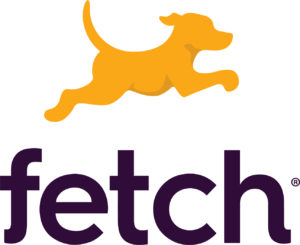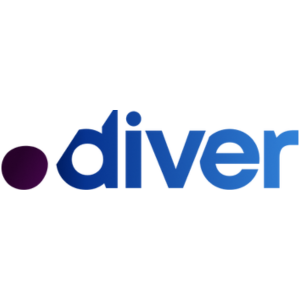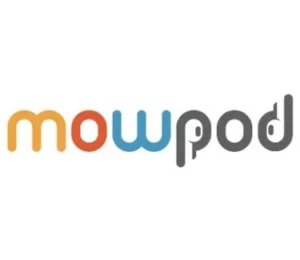LISTEN IN A POD APP
Filters
Jeffrey Hayzlett | C-Suite Network
How to act like a Media Company — Jeffrey Hayzlett // C-Suite Network
Jeffrey Hayzlett, Chairman and CEO of the C-Suite Network, explores how to elevate your content strategy. As traditional performance marketing methods lose effectiveness, brands are evolving into media companies. In response to consumers actively selecting the messages they engage with, brands are adapting by becoming more creative to capture their attention. Today, Jeffrey discusses how…
Play PodcastStephan Beringer | Mirriad
Virtual Product Placement — Stephan Beringer // Mirriad
Stephan Beringer, CEO of Mirriad, explores how in-content advertising has emerged as a powerful tool for reaching engaged audiences. Virtual product placement is a powerful tool for brands to connect with audiences in a relevant way and cut through advertising clutter by integrating seamlessly into content. It offers a unique opportunity to break through in…
Play PodcastStephan Beringer | Mirriad
In-Content Advertising in Streaming — Stephan Beringer // Mirriad
Stephan Beringer, CEO of Mirriad, explores how in-content advertising has emerged as a powerful tool for reaching engaged audiences. In-content advertising has risen in popularity because it overcomes the drawbacks of traditional interruptive ads, which frequently result in ad fatigue and reduced viewer engagement. It achieves this by seamlessly integrating brands into content and increasing…
Play PodcastIsmael El-Qudsi | SocialPubli
AI’s role in finding the right influencers — Ismael El-Qudsi // SocialPubli
Ismael El-Qudsi, Co-founder and CEO of SocialPubli, explores AI for influencer marketing. Influencer marketing’s main issue today is the prevalence of people buying followers or using bots. Fortunately, AI can detect potential fraud within influencer metrics, such as fake followers or inflated engagement rates, helping brands avoid collaborations with influencers who may not deliver genuine…
Play PodcastKristina Prokop | Eyeota // Dun & Bradstreet
The New Identity Data Landscape — Kristina Prokop // Eyeota
Kristina Prokop, CEO and Co-Founder of Eyeota, and GM of Audience Solutions at Dun and Bradstreet, explores the dynamic global landscape of audience data and its impact on B2B businesses. Traditionally, identity data referred to basic information like names, addresses, and contact details, but it has since expanded to include digital identifiers like IP addresses.…
Play PodcastNii Ahene | Tinuiti
MarTech Strategy in a nutshell — Nii Ahene // Tinuiti
Nii Ahene, Chief Strategy Officer at Tinuiti, looks into digital marketing acquisitions as a strategy. The environment created by iOS 14.5 ATT and the broader push for user privacy has disrupted the conventional means of understanding the effectiveness of marketing efforts. As advertising partners lose access to certain user data due to privacy measures, marketers…
Play PodcastMattia Santin | Hotjar
Maximizing customer empathy with product design — Mattia Santin // Hotjar
Mattia Santin, Chief Marketing Officer at Hotjar, explores elevating product design through customer empathy. Quantitative data provides a broad overview of customer behavior, while qualitative data sheds light on the "why" behind their actions. Leveraging both signals, allows for a more empathetic approach, ensuring that design decisions address real-world customer concerns, ultimately leading to a…
Play PodcastNick Lissette | Black Pearl Group
How site Visitor ID Enhances Lead Gen — Nick Lissette // Pearl Diver
Nick Lissette, CEO of Black Pearl Group, explores the power of unlocking anonymous visitor identification. The beauty of site visitor identification lies in its ability to provide businesses with a deeper understanding of their customers, enabling them to tailor their marketing and sales strategies to specific audience segments. As a result, businesses can streamline their…
Play PodcastJake Randall | Common Room
Understanding community-led growth — Jake Randall // Common Room
Chief Operating Officer of Common Room, Jake Randall, dives into the concept of community-led growth in this episode. He explains how engaging with users throughout the customer journey can drive brand awareness, product adoption, and revenue. Jake shares insights on how Common Room's platform brings together digital engagement, product usage, and customer data to unlock…
Play PodcastJake Randall | Common Room
Navigating the influencer-led B2B buyers journey — Jake Randall // Common Room
Jake Randall, Chief Operating Officer at Common Room, explores how to successfully navigate the modern buyer’s journey. The digital age has transformed how buyers make decisions, with a growing emphasis on self-direction and online research. As a result, the traditional approach of pushing sales messages must be replaced with a focus on meeting customers where…
Play PodcastAbout Business Class: B2B
What is B2B (Business to Business)?
B2B or business-to-business refers to products and services that are designed, built, and marketed specifically for other businesses.
The Difference Between B2B and B2C (Business-to-consumer)
The main difference between B2B and B2C (Business-to-customer) is that B2B covers transactions that are done between companies as opposed to B2C, which categorizes transactions between a business and an individual customer.
B2B Marketing vs B2C Marketing
Many B2B marketers would argue B2B marketing is more complex than B2C marketing. Each market type has its own complexities.
Unlike B2C sales and marketing, which is oftentimes targeted toward persuading an individual customer to purchase a product or service, B2B sales and marketing are targeted toward convincing multiple customers such as an entire company and its stakeholders.
In the case of sales of B2B products and services, you not only need to convince the main decision-makers or buyers like the C-suite staff, but you also have to convince them that the entire department or company will benefit. Unlike most typical B2C businesses, the buyer in a B2B business is not the only one impacted by a purchase. It's oftentimes the entire company.
Faced with this challenge, many B2B companies focus heavily on generating high-quality B2B leads and ensuring their journey through the funnel is as efficient as possible to drive sales.
Apk Ticket blog is dedicated to delivering you the best news about your Android devices. We're also committed to helping you find all of the features and applications that you need to live your best life
How to generate B2B Leads & Sales
- Develop a Content Marketing Strategy:
- Create a strong B2B content marketing strategy that adds value to potential buyers, increases lead generation, and drives sales.
- Optimize your B2B Website:
- Set up your B2B website to a self-service where website visitors can be educated and B2B buyers are given the information needed for the decision-making process. Many B2B eCommerce websites have done this very well (e.g. Alibaba.com) where B2B customers can browse and purchase directly from the website.
- Offer a Free Trial:
- Offer a free trial period to new B2B customers. This permits them to use the product or service in the context of their business risk-free and helps potential customers make a decision if they are unsure. When businesses can easily see the impact your product or service has on their operations, you're more likely to obtain more sales.
- Provide Tutorials:
- Create a thorough tutorial system in order to guide the buyer through the product or service so that implementation is as smooth as possible.
B2B in the MarTech World
When people think of B2B, many think of it in the context of a traditional supply chain where a company making a physical product is purchasing components and raw materials from another company in order to sustain its manufacturing process.
The reality is that B2B exists in the digital world in much the same way that it exists in the physical world. Many of the stakeholders in corporate companies and start-ups rely on software built by other businesses in order to build their own digital products or services.
The combination of these various B2B MarTech tools is called their B2B MarTech stack.
How to build a B2B MarTech Stack
If you're building a B2B MarTech stack, there are a few categories that need to be covered. These include:
- Customer Relationship Management (CRM)
- Tracking relationships across your sales and marketing departments is essential. Your customer relationship management tool is key to doing so in order to nurture and convert B2B customers at various touchpoints. Consider using tools like Hubspot CRM, Salesforce, or SAP CRM.
- Marketing Automation
- With the evolution of data collection, consumers today expect more than just cookie-cutter ads that can apply to a large group of people. They want personalization. Nowadays, marketing automation tools like HubSpot, Marketo, and Pardot offer AI and machine learning feature to make it easier to personalize your communication.
- Content Marketing Management
- Content has been king and remains king. A robust content marketing management system is essential for a B2B marketing strategy. The best-in-class platforms offer a combination of workflow management, editorial calendars, and an array of features that make publishing content easy and efficient. Tools we recommend include Contently, DivvyHQ, and Kapost.
- Customer Data Platforms
- "Data is the new oil," is a common phrase marketers have encountered throughout the industry. Given its value, the unification and analysis of customer data should definitely be a priority for your company. Customer data platforms include tools like Segment, Optimove and Exponea.
The Importance of MarTech in B2B
By itself, B2B marketing is a relatively difficult task given it requires persuading a collection of people, such as teams and departments, at a time in order to make a sale. However, when put into the context of the present-day marketing and advertising industry, the rise in ad-blockers and the general disdain consumers have when it comes to being marketed to on social media and search, we see that executing B2B marketing end-to-end is growing increasingly difficult.
With negative sentiments surrounding advertising increasing, it's clear B2B marketers need to revise their approaches, and that approach is personalization.
In order to facilitate personalization, B2B marketers use MarTech tools, which help them access, organize, analyze, unify and action the data. The ability to personalize their marketing in this way allows them to craft outreach messages, nurture campaigns and calls-to-action that customers actually relate and respond to.
If you're interested in learning more about B2B, B2B marketing, B2B companies and B2B sales, check out the episodes listed below from the MarTech podcast.
They include interviews with marketers and influencers in the B2B MarTech industry who share their advice, strategy, and the best B2B tools on the market.
Read MoreRead Less
Sponsors of the MarTech Podcast



































